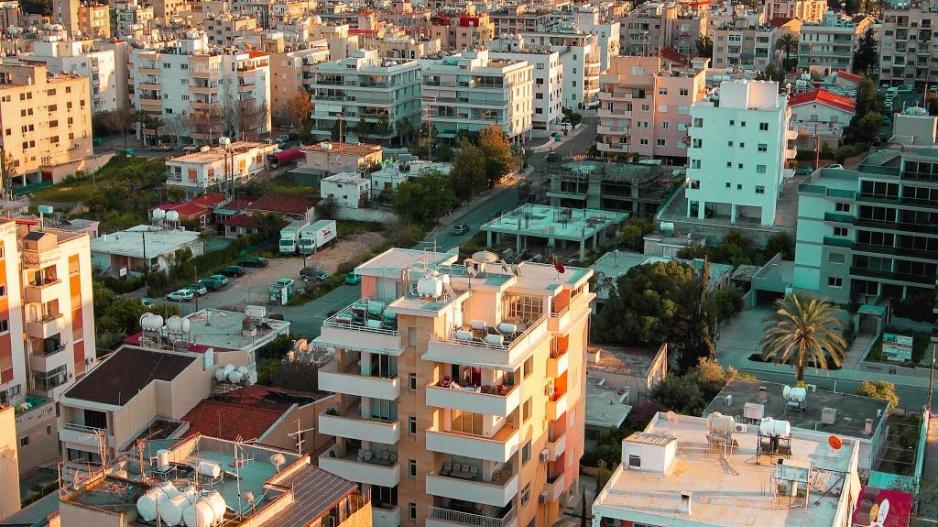UNDP Implements Energy Efficiency and Renewable Energy Measures in Lefka
The United Nations Development Programme (UNDP) has announced the implementation of three measures aimed at improving energy efficiency and renewable energy production in Lefka. These initiatives, funded by the European Union (EU), are designed to promote sustainability, reduce energy consumption, and contribute to a reduction in CO2 emissions across the island.
The first measure focuses on the installation of a 300 kWp solar photovoltaic panel system. This system will harness solar power to generate approximately 500,000 kWh of clean energy annually.
The other two measures are focused on the water supply system. The EU-funded Local Infrastructure Facility (LIF) project aims to enhance water distribution efficiency by introducing an automated pumping system and replacing water tanks to reduce leaks. It is estimated that these improvements will lead to a reduction in energy consumption for water supply by over 30%.
By optimizing water resource management, these initiatives will not only conserve valuable energy but also promote sustainable water usage within the local community.
Kjartan Björnsson, Deputy Director & Head of Unit for Cyprus Settlement Support at the Directorate-General Reform of the European Commission, emphasized the importance of tapping into renewable energy sources. By doing so, the local community can reduce its dependence on fossil fuel-based energy and make significant progress towards a greener energy mix. The successful implementation of this project will also unlock potential for further investment in renewable energy initiatives, demonstrating the EU's commitment to sustainable energy and bridging divides in Cyprus.
Jakhongir Khaydarov, Head of Office at UNDP, highlighted the significance of the installation of solar photovoltaic panels and the improvement of the water supply system in Lefka. These actions signify a commitment to mitigating climate change and promoting sustainable development in Cyprus. By generating clean energy and ensuring responsible water resource management, carbon emissions will be reduced across the island, resulting in a positive impact on the environment and the well-being of the community.
The cumulative impact of these energy efficiency measures, including the installation of the solar photovoltaic system and the enhancement of the water supply system, will lead to a significant reduction of 1,184,587 kWh/year in fossil fuel-based energy consumption. This reduction corresponds to approximately 805.52 tons of CO2 emissions saved annually, contributing to an island-wide decrease in carbon emissions. The press release concludes by stating that the local community in Lefka is setting an inspiring example for other communities to follow by embracing these initiatives.

Meanwhile, the Energy Poverty Advisory Hub (EPAH) of the European Commission has approved funding for technical assistance to address energy poverty in refugee settlements within the Municipality of Strovolos. This significant decision was announced by the Municipality in a recent press release.
The primary goal of the project is to conduct a comprehensive study that will be integrated into the broader framework of upgrading the refugee settlements in Strovolos. This study will be developed as a master plan, following the approval of the Strovolos Municipal Council. The Municipality has clarified that its proposal, titled "Government Settlements - Tackling Energy Poverty - Diagnosis - Mapping Solutions - Informing Citizens," aims to provide support to the residents of the Strovolos refugee settlements.
Among the key deliverables of the project is the mapping of energy poverty in the study area, which encompasses a government settlement consisting of approximately 700 residential units. Additionally, the project will document a range of solutions and measures to improve the energy situation in the study area. The Municipality has enlisted the expertise of professionals from the Cyprus Institute to undertake the study on their behalf. This collaboration was initiated by the Advisory Hub, and the study is expected to be completed within a nine-month timeframe.
The selection of these particular settlements is based on several factors. Notably, the buildings in the area are quite old, predating 2006 when energy efficiency regulations were not yet in effect. Consequently, there is a clear need to address the energy performance of these structures. Moreover, the study will consider other parameters that contribute to the vulnerability of residents in the area to energy poverty.






